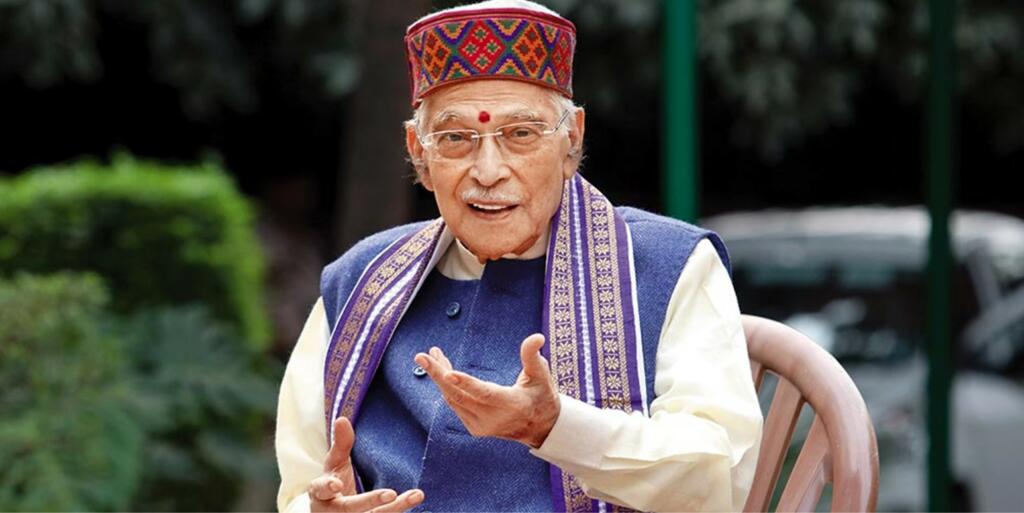From 1947 to 1968, the education system of India was working without a National Education Policy. Although the commissions were formed, they never materialised to create an impact on the education system because of the laziness of politicians. The politicians cleverly did not allow the education system to be reformed as educating the youth would have challenged their political dominance. Even after 1968, the steps taken proved to be ineffective in reforming the system as most of ruling leaders were opening up to corruption.
But the blueprint of Indian education underwent a change after Murli Manohar Joshi became the education minister of India in 1998. He is remembered as one of the most successful education ministers of India.
Political freedom, educational subjugation
The British left the country in 1947 but the education system was echoing their impression through textbooks and syllabus of post-independent India. They ruled over the nation by instilling cultural inferiority complex in Indians. Macaulay’s contribution in that conspiracy is well known. Unfortunately, the education ministers of independent India carried on the educational subjugation of masses on the lines of the British.
Nurul Hasan, minister of education under Indira Gandhi between 1971-77 provided state patronage to leftist historical writings. The Marxist scholars of history were holding the key institutions which gave them the power to write textbooks used to teach students. As a result, the history books were written with the Marxist perspective.
This led to complete alienation of Indian education from the Indian culture. When Murli Manohar Joshi took charge of the Education Ministry, he objected to the communist foul play with Indian history. He pointed out some of the passage from the history books that were defamatory towards Indian culture.
Also read: How history was monopolized by Congress
Joshi’s Indianisation of Education
Pointing out the passages, he assured that in future no material objectionable to any religion, cast, language and area will be published in NCERT books. In a remarkable move, he said “as the language used with respect to Guru Teg Bahadur, Mahavir and the Jat community in the NCERT history books was derogatory, the said portion have been removed from the text book.”
The passage which stated that cow meat was eaten in Vedic era was also deleted from the textbooks as it caused resentment in the people. The previous textbooks were written to distort Indian cultural and religious orientations.
Jainism was taught as founded by Mahavir. However, in actual Jainism was founded by first Tirthankara Lord Rishabhdev.
Apart from correcting the textbooks, he emphasised on reforming the education system as a whole. Although Supreme court in 1991 proclaimed the right to education as fundamental, the bill to amend the constitution to make it a fundamental right was pending. Later, it was Murli Manohar Joshi who envisaged to implement it through constitution instead of just a court judgement.
His vision regarding that was clear from his statement which said “Judgements can be overturned. But a constitutional amendment will make certain that we no longer ignore education.”
In accordance of that, the 83rd constitutional amendment act was passed from the parliament. The constitution was added with Article 21A which made elementary education compulsory and free for students till 14 years of age. It was complimented by the launch of Sarva Shiksha Abhiyan to increase the enrolment of students in primary schools.
Also read: What is your child learning in school? 8 times NCERT books lied about history
First education minister to understand ground reality
It is considered to be a very important step as being uneducated, most of the poor parents either pulled out their children from schools or did not allow them to join schools. The children who lacked reason to aspire for a good life remained uneducated and after becoming an adult faced the dilemma regarding their career. So, making elementary education compulsory and free actually solved a twofold problem. One, being the parent’s inability to spend on education and other conserving the rights of children.
For these reasons, we can say that India may have seen many education ministers, but in actuality it was only Murli Manohar Joshi who worked to corelate India’s education with people’s aspirations. All the previous initiative failed because they were not solving the problems faced on ground.
Support TFI:
Support us to strengthen the ‘Right’ ideology of cultural nationalism by purchasing the best quality garments from TFI-STORE.COM
